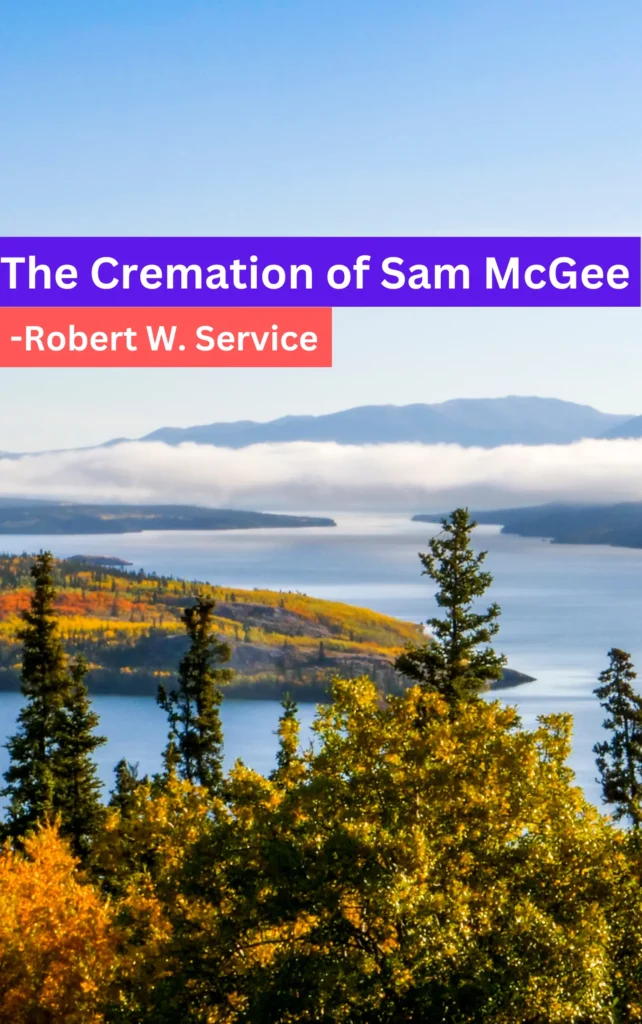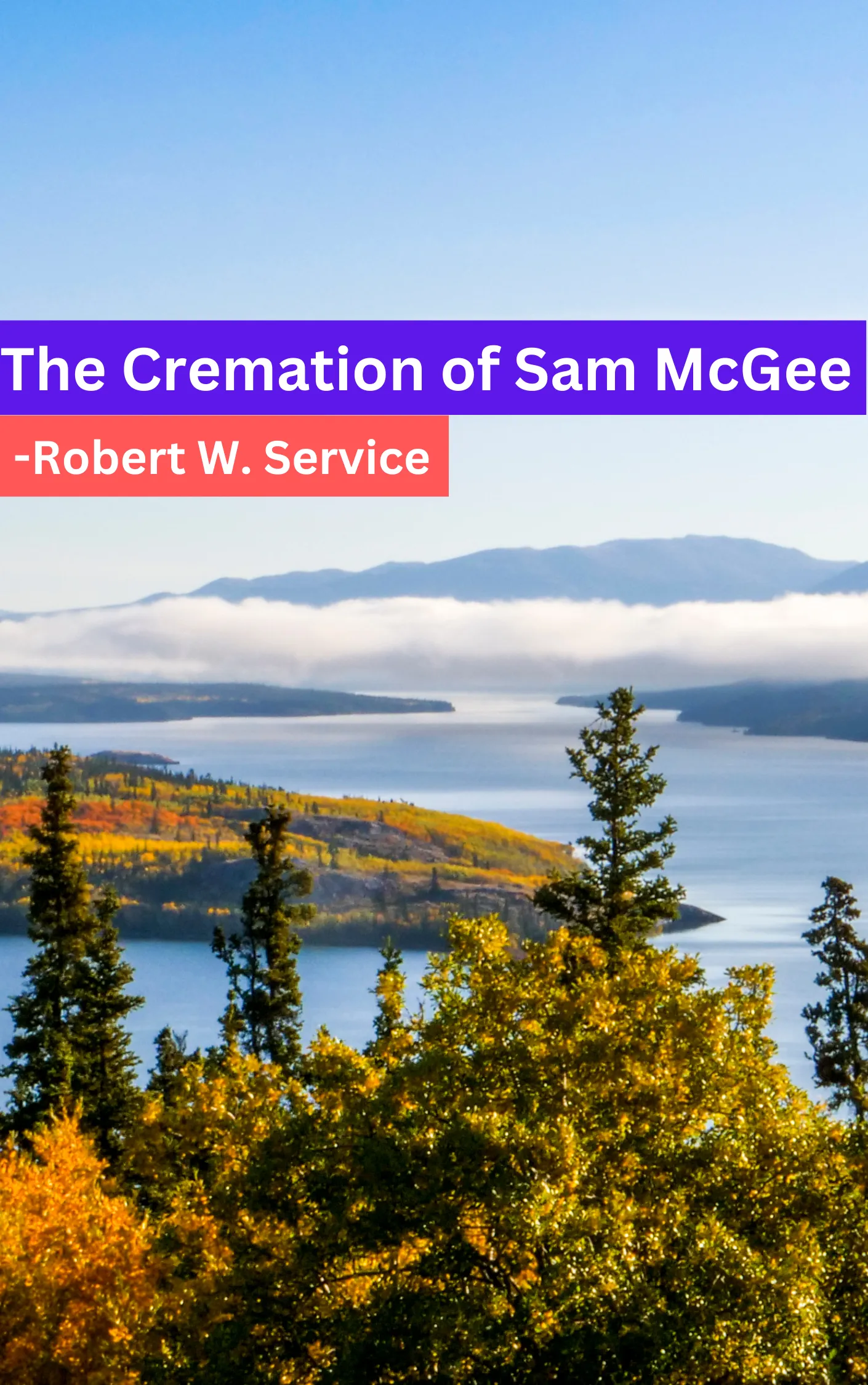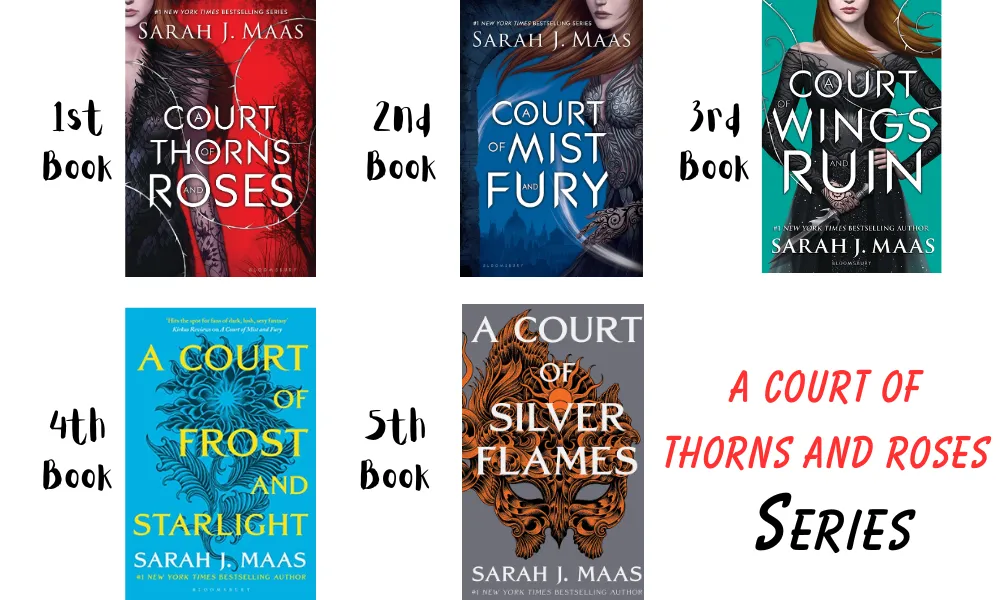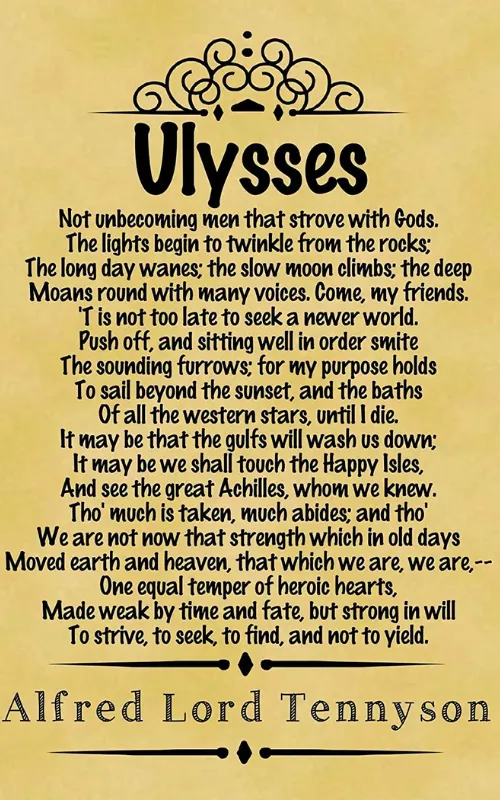
About Poem: The Cremation of Sam McGee
| Poem Title | The Cremation of Sam McGee |
| Author | Robert W. Service |
| Date of publication | 1907 |
| Genre | Narrative poetry, ballad |
| Style | Rhyming quatrains, storytelling |
| Form | 13 quatrains (52 lines) |
| Setting | The Yukon during the Klondike Gold Rush in Canada |
| Themes | Survival, friendship, the extremes of cold, adventure |
| Narrative | A first-person account of a chilling adventure in the harsh Yukon wilderness. |
| Key literary devices | Imagery, symbolism, and personification |
| Famous lines | There are strange things done in the midnight sun By the men who moil for gold; The Arctic trails have their secret tales That would make your blood run cold. |
Themes: The Cremation of Sam McGee
The themes of “The Cremation of Sam McGee” by Robert W. Service are:
- Survival in Harsh Conditions ➤ The poem explores the theme of survival in extreme cold and the lengths to which a person will go to endure such conditions.
- Loyalty and Friendship ➤ The unwavering friendship and loyalty between the two main characters, Sam McGee and the narrator, are central themes in the poem.
- Isolation and Desolation ➤ The harsh Arctic landscape and the sense of isolation it brings to the characters contribute to the poem’s themes of desolation and the human spirit’s struggle against it.
- Dark Humor ➤ The poem uses dark humor to add a unique and unexpected layer to the narrative, combining elements of horror and comedy.
The Cremation of Sam McGee Poem
There are strange things done in the midnight sun
By the men who moil for gold;
The Arctic trails have their secret tales
That would make your blood run cold;
The Northern Lights have seen queer sights,
But the queerest they ever did see
Was that night on the marge of Lake Lebarge
I cremated Sam McGee.
Now Sam McGee was from Tennessee, where the cotton blooms and blows.
Why he left his home in the South to roam ’round the Pole, God only knows.
He was always cold, but the land of gold seemed to hold him like a spell;
Though he’d often say in his homely way that ‘he’d sooner live in hell’.
On a Christmas Day we were mushing our way over the Dawson trail.
Talk of your cold! through the parka’s fold it stabbed like a driven nail.
If our eyes we’d close, then the lashes froze till sometimes we couldn’t see;
It wasn’t much fun, but the only one to whimper was Sam McGee.
And that very night, as we lay packed tight in our robes beneath the snow,
And the dogs were fed, and the stars o’erhead were dancing heel and toe,
He turned to me, and ‘Cap,’ says he, ‘I’ll cash in this trip, I guess;
And if I do, I’m asking that you won’t refuse my last request.’
Well, he seemed so low that I couldn’t say no; then he says with a sort of moan:
‘It’s the cursed cold, and it’s got right hold till I’m chilled clean through to the bone.
Yet ‘taint being dead – it’s my awful dread of the icy grave that pains;
So I want you to swear that, foul or fair, you’ll cremate my last remains.’
A pal’s last need is a thing to heed, so I swore I would not fail;
And we started on at the streak of dawn; but God! he looked ghastly pale.
He crouched on the sleigh, and he raved all day of his home in Tennessee;
And before nightfall a corpse was all that was left of Sam McGee.
There wasn’t a breath in that land of death, and I hurried, horror-driven,
With a corpse half hid that I couldn’t get rid, because of a promise given;
It was lashed to the sleigh, and it seemed to say: ‘You may tax your brawn and brains,
But you promised true, and it’s up to you to cremate those last remains.’
Now a promise made is a debt unpaid, and the trail has its own stern code.
In the days to come, though my lips were dumb, in my heart how I cursed that load.
In the long, long night, by the lone firelight, while the huskies, round in a ring,
Howled out their woes to the homeless snows -O God! how I loathed the thing.
And every day that quiet clay seemed to heavy and heavier grow;
And on I went, though the dogs were spent and the grub was getting low;
The trail was bad, and I felt half mad, but I swore I would not give in;
And I’d often sing to the hateful thing, and it hearkened with a grin.
Till I came to the marge of Lake Lebarge, and a derelict there lay;
It was jammed in the ice, but I saw in a trice it was called the ‘Alice May.’
And I looked at it, and I thought a bit, and I looked at my frozen chum;
Then ‘Here,’ said I, with a sudden cry, ‘is my cre-ma-tor-eum.’
Some planks I tore from the cabin floor, and I lit the boiler fire;
Some coal I found that was lying around, and I heaped the fuel higher;
The flames just soared, and the furnace roared – such a blaze you seldom see;
And I burrowed a hole in the glowing coal, and I stuffed in Sam McGee.
Then I made a hike, for I didn’t like to hear him sizzle so;
And the heavens scowled, and the huskies howled, and the wind began to blow.
It was icy cold, but the hot sweat rolled down my cheeks, and I don’t know why;
And the greasy smoke in an inky cloak went streaking down the sky.
I do not know how long in the snow I wrestled with grisly fear;
But the stars came out and they danced about ere again I ventured near;
I was sick with dread, but I bravely said: ‘I’ll just take a peep inside.
I guess he’s cooked, and it’s time I looked then the door I opened wide.
And there sat Sam, looking cool and calm, in the heart of the furnace roar;
And he wore a smile you could see a mile, and he said: ‘Please close that door.
It’s fine in here, but I greatly fear you’ll let in the cold and storm –
Since I left Plumtree, down in Tennessee, it’s the first time I’ve been warm.’
There are strange things done in the midnight sun
By the men who moil for gold;
The Arctic trails have their secret tales
That would make your blood run cold;
The Northern Lights have seen queer sights,
But the queerest they ever did see
Was that night on the marge of Lake Lebarge
I cremated Sam McGee.
The Cremation of Sam McGee Summary & Analysis
The Cremation of Sam McGee” is a famous narrative poem by Robert W. Service, known for its vivid storytelling and dark humor. The poem is set in the harsh, freezing Yukon wilderness during the Gold Rush era. It tells the story of a prospector named Sam McGee and his friend, the narrator, as they face the deadly cold of the Arctic.
Stanza 1
The poem opens with the narrator, who is not named, describing the frigid, desolate Arctic landscape. They are traveling on the Arctic trail in bitter cold and darkness. The intense cold is a central element of the poem, creating a sense of foreboding.
Stanza 2
The second stanza introduces Sam McGee, a fellow traveler of the narrator. Sam is a colorful character, always wrapped up in blankets to keep warm. He reveals a deep fear of the cold and an intense desire to be cremated after death instead of being left to freeze in the Arctic.
Stanza 3
As the journey continues, the cold becomes more unbearable, and the two travelers struggle to keep warm. Sam McGee’s anxiety about freezing to death intensifies. He asks the narrator to promise that, should he die, he will cremate his body.
Stanza 4
The situation becomes increasingly dire as they reach Lake Lebarge. Sam McGee’s health deteriorates, and he eventually dies in the narrator’s arms. True to his word, the narrator constructs a makeshift crematory to honor Sam’s dying wish.
Stanza 5
In the final stanza, the narrator creates a fire in the empty boat, placing Sam McGee’s body on the burning deck. As Sam’s body is consumed by the flames, the heat of the cremation provides a stark contrast to the surrounding cold. The poem ends with the notion that Sam McGee’s soul might find warmth at last.
FAQs: The Cremation of Sam McGee
What is the meaning of the poem The Cremation of Sam McGee?
The poem is about how life in the Yukon is hard, but friendship and promises are still important.
Is The Cremation of Sam McGee a true story?
The poem is a fictional story based on real people and events.
What happened to Sam in The Cremation of Sam McGee?
Sam McGee freezes to death on a mining trip in the Yukon.
What does Moil for gold mean?
Moil for gold means to work very hard for gold.
Why does the narrator walk away once the body is burning?
The narrator walks away because he is sad and tired, and he can’t bear to watch his friend’s body burn.
Why does the speaker curse that load as he is traveling?
The speaker curses the load because he is carrying the dead body of his friend.
What made the poet think that his mind was going numb?
The poet thought his mind was going numb because he was very tired and confused from the extreme cold.
What kind of poem is The Cremation of Sam McGee?
The Cremation of Sam McGee is a narrative poem.
Why is The Cremation of Sam McGee so popular?
The poem is popular because it is a well-written story about friendship and the human spirit, set in an interesting and exciting time and place.









![A Game of Thrones Summary,Themes,Characters & Synopsis [George R.R. Martin] A Game of Thrones Summary,Themes,Characters & Synopsis [George R.R. Martin]](https://atozsummary.com/wp-content/uploads/2023/08/A-Game-of-Thrones-SummaryThemesCharacters-Synopsis-George-R.R.-Martin-1024x538.webp)

